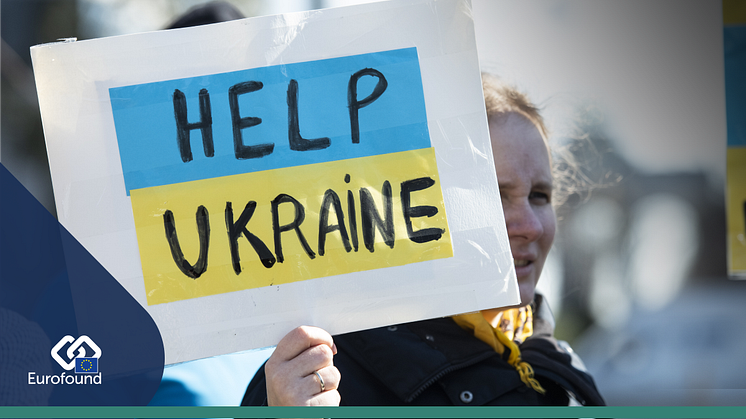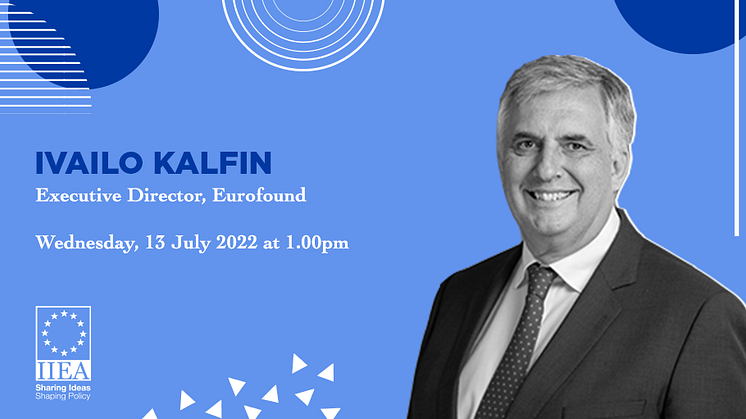
Blog post -
Trust in national institutions is falling: Data behind the decline
Trust in national institutions has declined across the EU over the past two years. Driven by increasingly difficult economic circumstances and unreliable news sources, even people who previously expressed higher trust levels – such as those in financially secure positions – have become less trusting.
This is according to the fifth round of the Living, working and COVID-19 e-survey: Living in a new era of uncertainty – a report that presents an overview of responses from over 200,000 people across all five rounds of the e-survey, which took place from spring 2020 to spring 2022.
In this data story, we take a closer look at the e-survey data to explore the decline of trust in national institutions over the last two years.
Trust in national institutions
Institutions have had to adapt to the new reality brought about by the pandemic. Following almost two years of restrictions, the e-survey results reveal a decline in trust across all institutions.
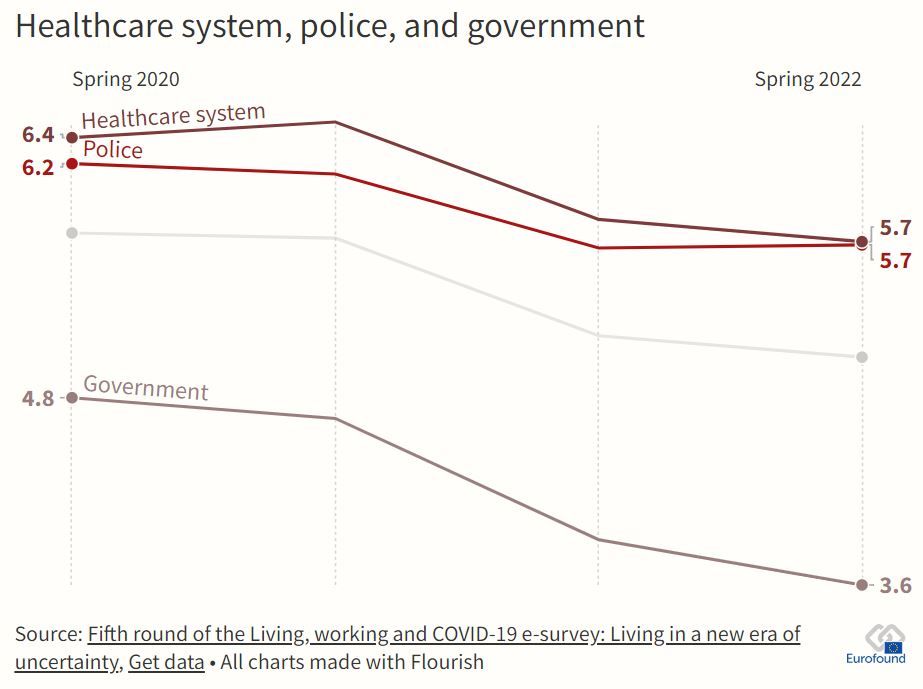
Trust in the main national institutions has decreased by 13.4% on average since the beginning of the pandemic in spring 2020. This includes decreases in trust in national governments (-24.5%), healthcare systems (-10.2%) and the police (-8.1%). While trust in the police remained consistent in 2021 and 2022, both years recorded lower values than in spring 2020.
Trust based on ability to make ends meet
The latest round of the e-survey shows that trust in institutions has fallen among respondents who are struggling to make ends meet and – for the first time since the survey began – among people in more financially secure positions.
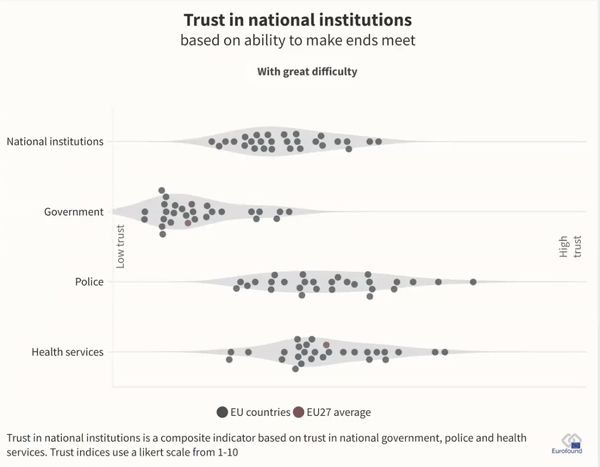
The above chart (interactive version here) shows the differing reported levels of trust in institutions, from people who are able to make ends meet only ‘with great difficulty’ to those who are able to make ends meet ‘very easily’.
Declining ability to make ends meet
The cost of living in the EU is rising at an unprecedented pace, with an average inflation rate across the 27 EU Member States of nearly 8% in March 2022.
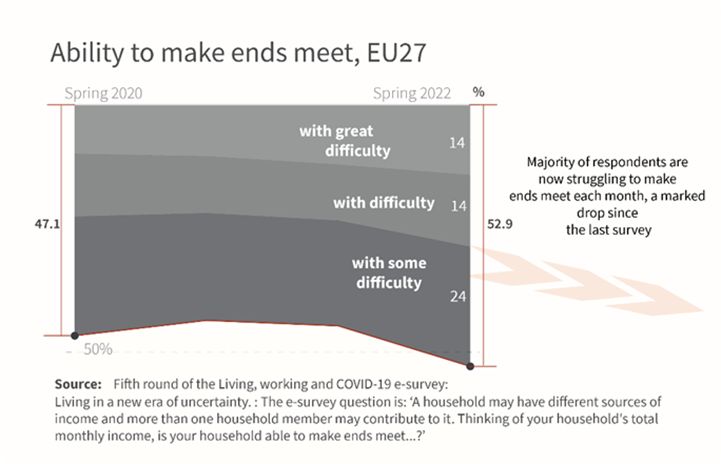
Evidence that the increasing cost of living is affecting people’s financial situation comes from the finding that 53% of e-survey respondents reported that, in spring 2022, their household had difficulties making ends meet – a considerable increase on the 45% reported in 2021 and the 47% at the start of the COVID-19 pandemic in 2020.
Trust gap across the EU
The difference in trust levels between those who report being able to make ends meet very easily and those who do so with great difficulty varies by institution across the EU.
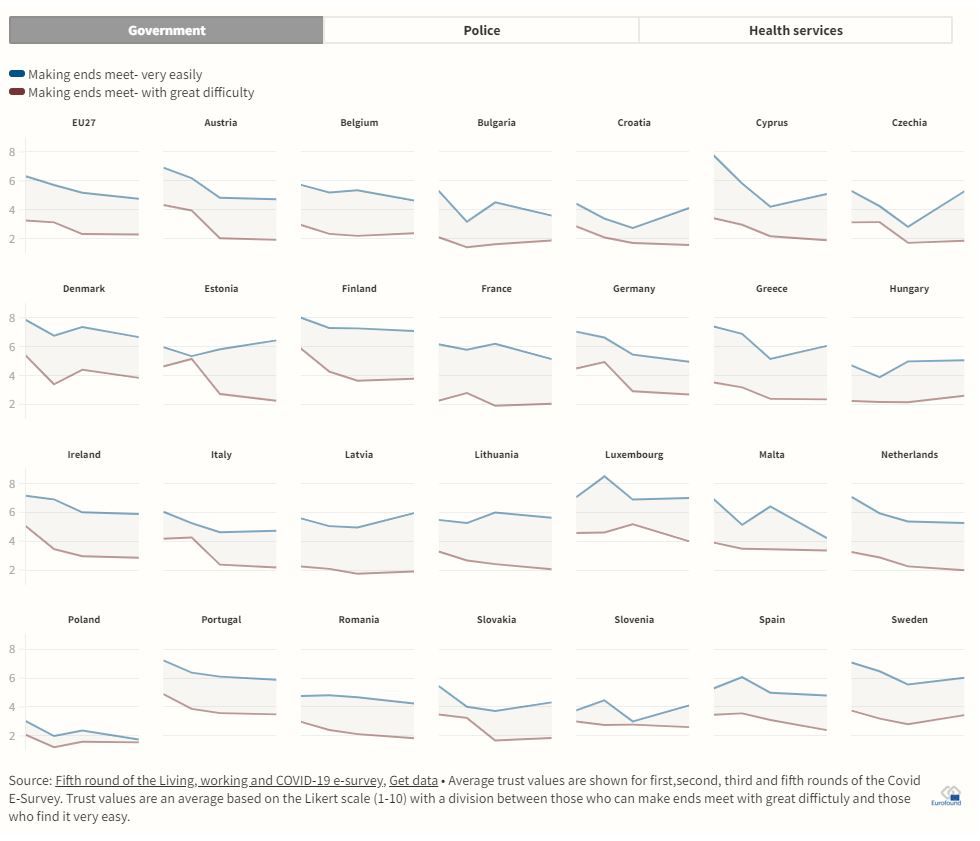
The above chart (interactive version here) visualises the national institution trust gap that took shape in each EU Member State since the beginning of the pandemic.
Impact of news source on trust
When social media is the preferred news source, trust plummets.

Respondents who chose social media as their preferred news source have lower trust in established institutions than respondents who use traditional media.
Conclusion
The challenges brought on by the crisis, which will mark the 2020s, places huge pressure on national and supra-national institutions to have the support of their citizens. One concerning finding from the latest round of the e-survey is that groups who previously exhibited higher trust levels in governments, such as those in financially more secure positions, are becoming less trusting, reflecting widespread dissatisfaction among the electorate.
With the cost of living in the EU at an unprecedented level, and as the devastating war in Ukraine continues to spur socioeconomic uncertainty across Europe, it will be difficult to get trust in institutions back to pre-pandemic levels without strategic action from policymakers.
Background
The fifth round of Eurofound's e-survey, fielded from 25 March to 2 May 2022, sheds light on the social and economic situation of people across Europe two years after COVID-19 was first detected on the European continent. It also explores the reality of living in a new era of uncertainty caused by the war in Ukraine, inflation and rising energy prices.
The findings of the e-survey reveal the heavy toll of the pandemic, with respondents reporting lower trust in institutions than at the start of the pandemic, poorer mental well-being, a rise in the level of unmet healthcare needs and an increase in the number of households experiencing energy poverty.
The forthcoming final Living, working and COVID-19 e-survey report (Q4 2022) will attempt to capture the long-lasting impact of COVID-19 on people’s living and working conditions and to assess the lessons learned from the experience of the e-survey. Sign up to receive an email when this publication is available.
Image © European Union, 2022




